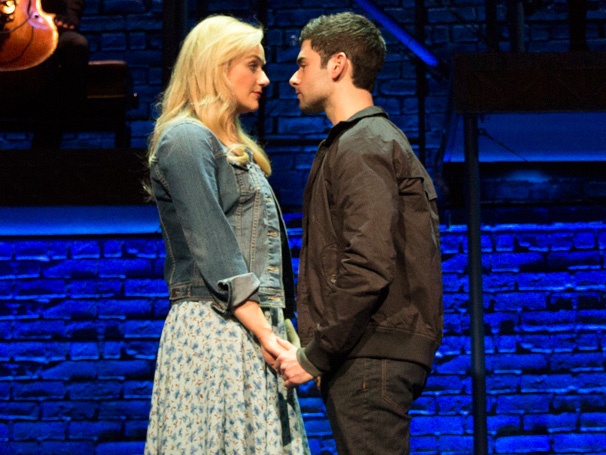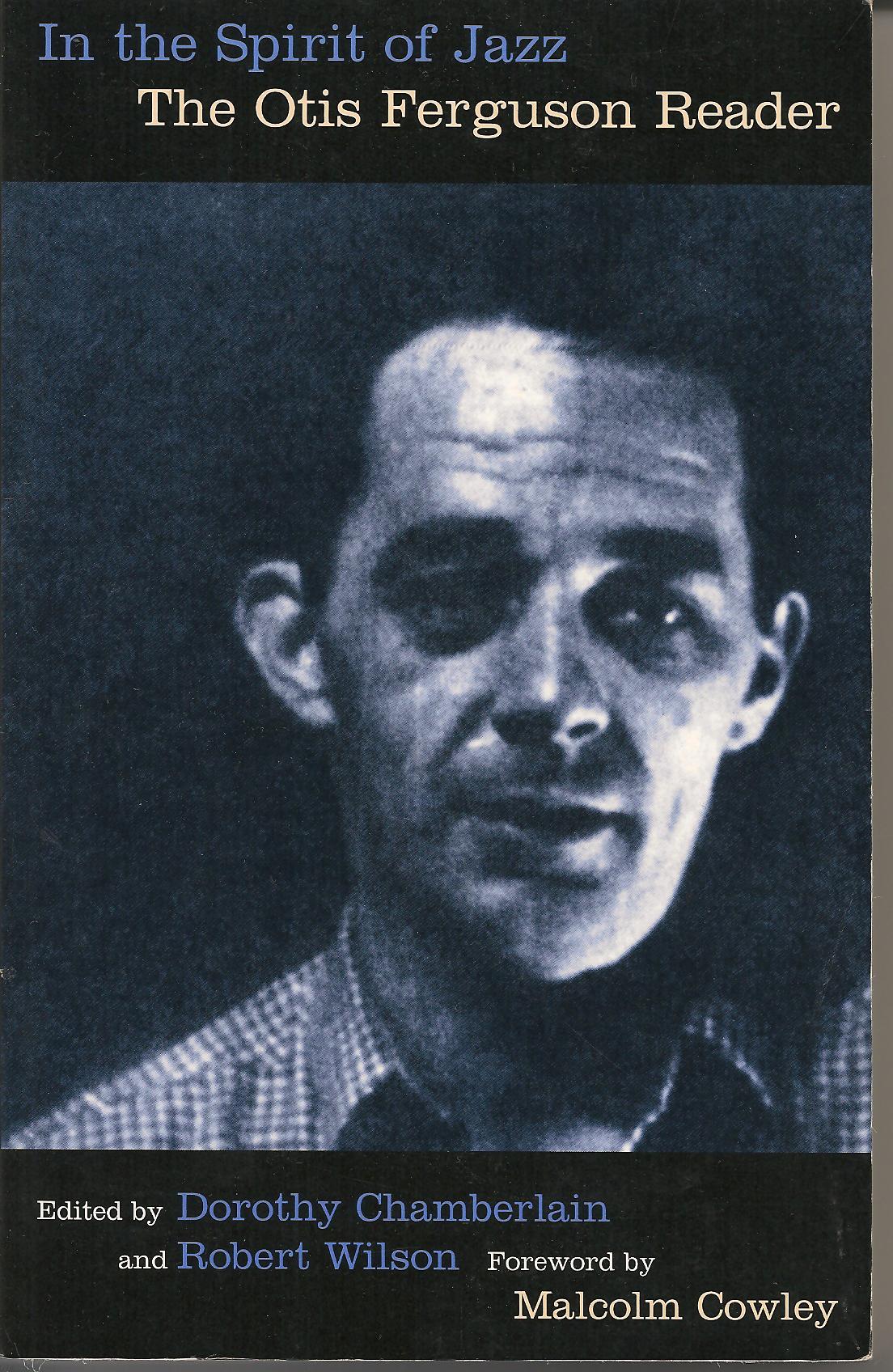In today’s Wall Street Journal I review Matilda and The Last Five Years. Here’s an excerpt.
* * *
The makers of “Matilda” have done the impossible–triumphantly. They’ve taken Roald Dahl’s popular children’s novel and turned it into a big-budget musical that is true enough to the book to satisfy its youthful readers, yet sophisticated enough to delight childless adults who normally wouldn’t be caught dead partaking of such kid stuff. It’s smart, sweet, zany and stupendous fun.
Originally published in 1988, “Matilda” is a revenge fantasy for eggheads, the story of a five-year-old prodigy whose favorite books include “Crime and Punishment,” “Tess of the d’Urbervilles” and “The Cat in the Hat.” Alas, Matilda’s aggressively anti-intellectual parents (Gabriel Ebert and Lesli Margherita) and stormtrooper-like headmistress (played in drag by Bertie Carvel) hate books and all who read them. Not to worry, though, for Miss Honey (Lauren Ward), a poor but kindly schoolteacher who fully appreciates her young charge’s talents, which turn out to include telekinesis, helps Matilda vanquish the wicked and live happily ever after.
Dennis Kelly, who wrote the book, has turned Mr. Dahl’s novel, parts of which are light on dialogue, into a fully stageworthy musical in which everything is shown rather than told. Tim Minchin’s riotously eclectic score skitters unpredictably from pop to jazz to semi-Sondheim to good old-fashioned razzmatazz….
 “The Last Five Years,” Jason Robert Brown’s two-handed musical about a young couple (Adam Kantor and Betsy Wolfe) who can’t make a go of their marriage, has returned to New York after 11 years in a revival immaculately staged by the author. Every aspect of this Off-Broadway production, from the strongly sung performances of Mr. Kantor and Ms. Wolfe to the playing of the six-person band, is guaranteed to satisfy.
“The Last Five Years,” Jason Robert Brown’s two-handed musical about a young couple (Adam Kantor and Betsy Wolfe) who can’t make a go of their marriage, has returned to New York after 11 years in a revival immaculately staged by the author. Every aspect of this Off-Broadway production, from the strongly sung performances of Mr. Kantor and Ms. Wolfe to the playing of the six-person band, is guaranteed to satisfy.
Whether you’ll want to see “The Last Five Years” depends on what you think of its subject matter. Mr. Brown freely admits that the show was inspired by the breakup of his own marriage to an actress. Jamie, the “hero,” is an up-and-coming novelist whose burgeoning success outstrips that of the neurotic Cathy, who is unable to come to terms with the awkward fact that his book is getting reviewed by John Updike in the New Yorker while she appears in second-rate summer theater in Ohio. So what does he do? Naturally, he dumps her…
What redeems “The Last Five Years,” up to a point, is Mr. Brown’s score. The music, which splits the difference between Hall & Oates and Ned Rorem, is better than the words, which could do with a medium-stiff dose of ironic detachment, but they fit together so comfortably as to overcome all objections–save to the premise of the show itself….
* * *
Read the whole thing here.
The original West End production of Matilda performs “Naughty” on last year’s Olivier Awards telecast:
Archives for April 12, 2013
TT: He got there first
In today’s Wall Street Journal “Sightings” column I pay tribute to Otis Ferguson, a great American critic who has yet to be properly remembered. Here’s an excerpt.
* * *
Most good writers get their due sooner or later, but sometimes an exceptional one slips through the cracks of renown. Consider the case of Otis Ferguson, who died in 1943. He invented American film criticism, more or less, and he wrote about popular culture of all kinds with intelligence, enthusiasm and a wide-open mind. Had he been more fortunate–or less brave–his work would be as well remembered today as that of James Agee or Pauline Kael. But in addition to being a pioneering critic, Ferguson was also a patriot who joined the Merchant Marine after Pearl Harbor and was blown up by a German bomb when he was just 36.
 That was 70 years ago, more than long enough for his stature as a writer to have been posthumously recognized. Alas, it has never happened, and both of his published essay collections, “The Film Criticism of Otis Ferguson” (1971) and “In the Spirit of Jazz” (1982) are out of print, though it isn’t hard to obtain used copies. To read them is to make the belated acquaintance of a critic who at his best was worthy of direct comparison with George Orwell, the writer whom he most closely resembled.
That was 70 years ago, more than long enough for his stature as a writer to have been posthumously recognized. Alas, it has never happened, and both of his published essay collections, “The Film Criticism of Otis Ferguson” (1971) and “In the Spirit of Jazz” (1982) are out of print, though it isn’t hard to obtain used copies. To read them is to make the belated acquaintance of a critic who at his best was worthy of direct comparison with George Orwell, the writer whom he most closely resembled.
A self-made intellectual, Ferguson came from working-class stock, serving a four-year stretch in the Navy to pay for his schooling. He started reviewing books for the New Republic in 1933 and became that magazine’s film critic in 1934, at a time when scarcely anyone else in America was writing regularly about movies. He added jazz to his critical portfolio two years later, publishing some of the first essays of substance about such now-legendary artists as Bix Beiderbecke, Duke Ellington and Benny Goodman….
Ferguson sensed that most Hollywood filmmakers were better at comedy than tragedy, and saw no reason to “snoot” their preference for the former. This set him apart from the vast majority of film critics in the ’30s, who were suckers for pseudo-serious movies and disdained pure comedy as a lesser species of art….
* * *
Read the whole thing here.
TT: Almanac
“History is bright and fiction dull with homely men who have charmed women.”
O. Henry, “Next to Reading Matter”
